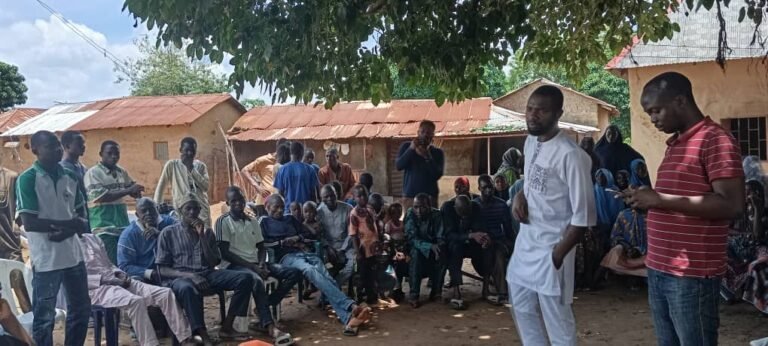The residents of Kaido Tsoho community in the Gwagwalada Area Council of the Federal Capital Territory (FCT) have urged President Bola Tinubu and the FCT Minister, Nyesom Wike, to come to their aid and provide essential amenities, including hospitals, schools, and road infrastructure.
They made the call during a pre-launch community engagement of the Movement for the Transformation of Nigeria (MOTION).
The residents said their condition was such that the primary health care centre in the community is ‘dead’, as there are no staff to man the centre, let alone having the required drugs or facilities.
The pre-launch community engagements created an opportunity for communities to understand and link how government actions, inactions, and weak accountability structures and electoral processes directly impact their rights, livelihoods, and wellbeing.
Through this process, grassroot communities will not only reflect on governance failures but also embrace their role in holding duty bearers accountable, and mobilise citizens to act, engage and hold leaders accountable.
A member of the community, Jibreel Galadima said that insecurity remained a pressing challenge as residents rely mainly on vigilante groups for protection, which was not adequate to protect them.
He added that apart from insecurity, poor infrastructure, and lack of access to agricultural inputs, there are other factors that are negatively affecting their living conditions, despite being in the seat of the federal government.
“It is only the vigilante groups working with the police that try to protect us, but their capacity is limited. We do not get enough attention from the security agencies. If government can strengthen support in this area, we will greatly appreciate it,” Galadima said.
On agriculture, Galadima explained that rural farmers were struggling to access essential inputs.
He noted: “In the past, farmers here had access to fertilizers and other inputs, but now the cost has become too high, which has reduced our level of production. We ask government to look into this and do its best to help farmers.”
Another resident Isah Barde recounted how recent herders’ activities had destroyed farms, leaving many uncertain about harvesting this year.
“Even my own farm was destroyed. I have not been able to go back, and I am not sure if I will be able to harvest anything,” Barde said.
On her part, Ms Habiba Ali, lamented the plight of women during childbirth or when they suffer other ailments.
“When it is time to give birth, we have to trek or get a bike to town because the hospital here is not functioning. Some women even give birth on the roadside,” she said.
She decried that the only river serving the community often dries up, while cows and other animals step into it, making the water unsafe.
The village chief, Mallam Usman Sarki, who spoke through Ahmed Biko, commended the visitors for listening to the community’s grievances and raising their hope that necessary actions would be taken by those in authorities.
Speaking on behalf of the MOTION, Mr Omole Ibukun, said the group would continue to mobilise residents to demand accountability from government.
“Many of the problems we see in Kaida Tsoho, such as poor roads, lack of healthcare and land issues, are the same challenges faced by communities across Abuja. Later this year on October 17, we will launch the Motion platform and peacefully march to the center of governance to demand that government addresses these issues,” Ibukun said.

